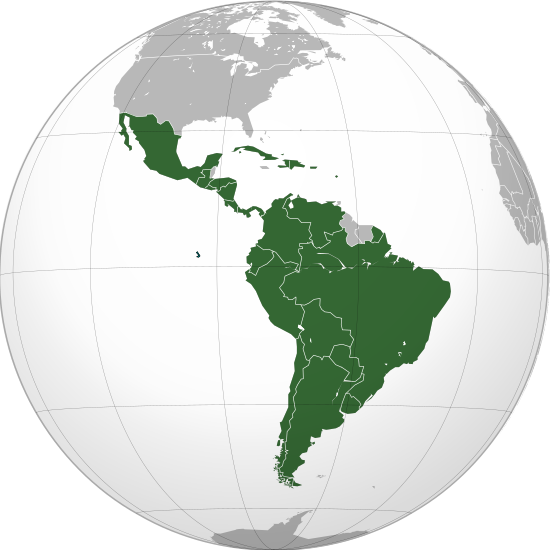After two years of trials and investigations, the Lava Jato, or Car Wash, scandal continues to wreak havoc on Brazil’s politics. On April 4, Brazil’s Supreme Court ruled against former President Luiz Inácio Lula da Silva’s appeal to avoid being imprisoned and barred from running for office again. Despite his lead in the polls for the October presidential election, he will not be on the ballot, and may watch the returns from jail.
Similarly, just last month President Pedro Pablo Kuczynski of Peru was forced to resign after his supporters were caught on tape buying votes against his imminent impeachment. Mr. Kuczynski was accused of receiving money from Odebrecht, the Brazilian construction conglomerate, more than a decade ago. He was the latest Latin American leader to fall into disgrace in unending corruption scandals, but probably not the last.
As the Mexican election campaign heats up, polls and pundits agree that the dominant issue for many voters is corruption. Each candidate accuses the others of engaging in corruption, being complicit in it or condoning it. The winner will probably be the candidate most likely to convince voters of his effectiveness in combating Mexico’s traditional scourge.
Have recent events against corruption begun to threaten democracy and the rule of law, instead of strengthening them? There is a case to be made for these doubts, but it is a weak and, ultimately, flawed one. Whatever the drawbacks and dangers of the current anti-corruption drive in the region, they are preferable to the alternative: an intolerable status quo.
On Friday and Saturday, Lima, the capital of Peru, will host the triannual Summit of the Americas, the only regional meeting where the leaders of every nation in the Western Hemisphere, including Cuba and the United States, sit at the same table. For each summit meeting, the group chooses a theme in advance. This time, the theme is corruption in the region.
In Argentina, myriad scandals involving the Kirchner and Fernández administrations have come to light and are being prosecuted. And in El Salvador, Guatemala and Honduras, former presidents are either in prison, under investigation or suspected of widespread corruption.
It is useful to recall that the region has been known for widespread corruption for many decades. In 1992, President Fernando Collor de Mello of Brazil resigned before being impeached for corruption; millions of dollars were discovered at the Washington-based Riggs Bank in the name of the Chilean dictator Augusto Pinochet; and Mexican presidents, dating back to the late ’40s, are suspected of having stashed away enormous fortunes. All of this went unnoticed, or in any case untouched. No longer.
The issue today is not whether the drive against corruption in Latin America will continue, nor if it represents a sea change in the region’s standard operating procedure. Both statements are undeniable. But is the rise of anti-corruption demagogues or the discredit for democratic rule that these scandals bring with them not more damaging than the original sin itself?
Are provisional institutions like the United Nations-inspired International Commission Against Impunity in Guatemala or the O.A.S.-inspired Mission to Support the Fight Against Corruption and Impunity in Honduras not undermining efforts to build permanent institutions against corruption?
In Brazil, where independent judges have exercised a direct impact on the electoral process, have they not opened the way to extremist rabble-rousers like the conservative candidate Jair Bolsonaro, while simultaneously making the country ungovernable?
And are the calls for an internationally supported truth commission on corruption and human rights violations in Mexico a symptom of civil society being fed up with interminable scandals, or a menace to the country’s eternally weak justice system?
There are no simple answers to these questions. Any flat-out judgment, in either direction, is bound to be schematic and skewed. The facts on the ground are that with two or three exceptions — Uruguay, Chile and perhaps Costa Rica — no country in Latin America has ever been spared massive doses of corruption. Standing institutions alone have never functioned effectively either in wiping it out, diminishing it noticeably or taking action against impunity for corruption or human rights violations. Regarding the latter plague, for which the region has a dismal reputation even today, international cooperation of one sort or another has proved indispensable for bringing criminals to justice or at least naming and shaming them for generations to come. The best example lies probably in Guatemala, but also in Argentina, where former presidents of the Junta were indicted and jailed for human rights violations.
There appears to be no choice but to place any attempt to deal legally, democratically and effectively with the lack of punishment above other considerations: institution-building, national sovereignty, political stability, short-term economic performance. Developments over the past few years in all the region’s countries are positive, hopeful ones. In the end, they will strengthen civil society, representative democracy, the rule of law and economic progress. They do not weaken institutions; they help to transform them and make them function.
Similarly, taking corruption to a supranational level that must be addressed through international cooperation is not an abdication of sovereignty; it is a desirable change.
In fact, this is perhaps the most imaginative and productive route for the fight against corruption. It is, by definition, a transnational phenomenon: People who steal money hide it far from where they stole it.
The Odebrecht scandal, the Panama Papers, the Foreign Corrupt Practices Act in the United States and the European Union’s equivalent legislation are all indicators of the need and the tradition of taking on corruption beyond strictly national borders. The inclusion of an anticorruption chapter in the new Nafta currently being negotiated by Mexico, the United States and Canada is a step in the right direction. But much more has to be done with regard to this supranational approach.
Governments have to exchange information on bank accounts, assets and travel — promptly and fully. Visas, property and monetary holdings must be subject to a clean bill of health for the individuals or companies — including offshore or shell companies — for new applicants and standing proprietors. Tax codes need to be strictly enforced, with no one looking the other way. Requests for arrests and extraditions should be responded to quickly and fairly. Acquisitions, sales and exchanges have to be monitored and questioned.
Much of this already occurs among rich nations: members of the Organization for Economic Cooperation and Development and the European Union. It is barely beginning between most Latin American nations and the United States. When the hemisphere begins to combat corruption with the same vigor with which it unwisely wages war on drugs and immigration, much will change in Latin America. Things are moving in the right direction; they need to move further and faster.
Inicio Infórmate
¿Ha llegado demasiado lejos la cruzada de América Latina contra la corrupción? (inglés)


